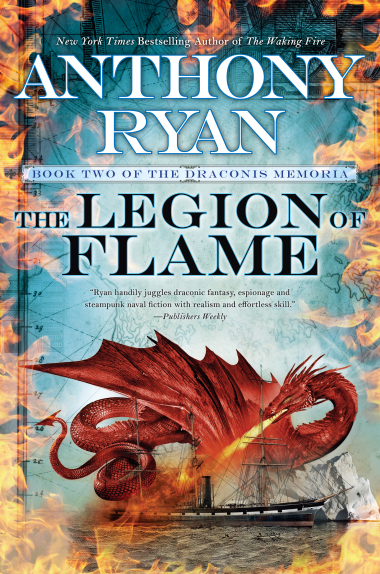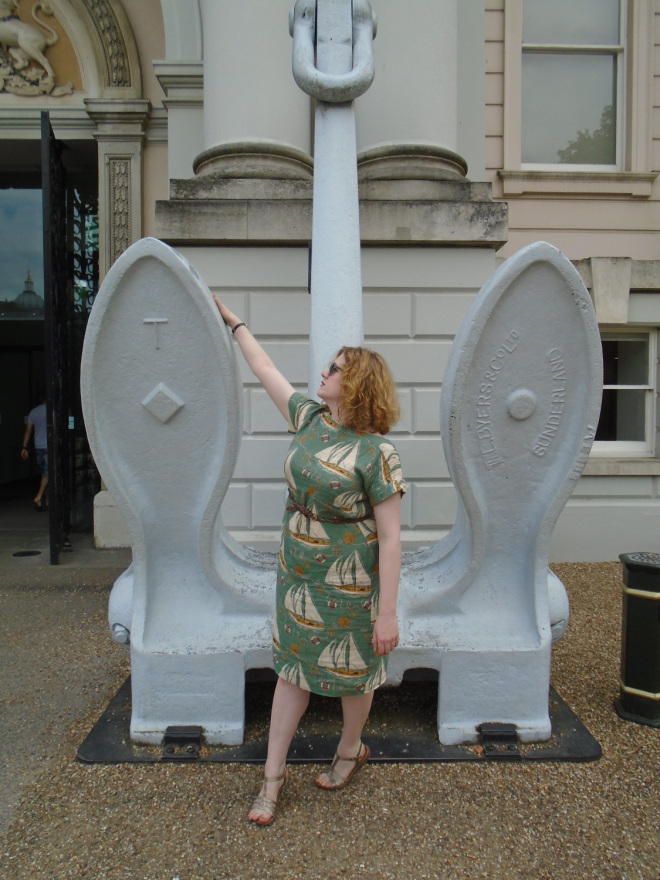

Rating: 3.5
Deciding on a rating for this series was hard for me because, while I really liked it, it was hard to get into at first. It took me three different tries to finish The Waking Fire. Once I did, however, I immediately began The Legion of Flame. Well, once I had gotten it from the library, that is, lol.
The world-building on this is interesting (more on that later), and very different from Ryan’s first trilogy. He also seems to have learned from his mistakes with that one as well. In the Raven’s Shadow series, he began his first book from one character’s POV only. He took the time to introduce others so that when he added their PsOV to the next two books, we weren’t completely blindsided, but it was still a change which, I believe, didn’t go over well with many of his fans. At least, it didn’t with me.
In the Draconis Memoria series, he started it with three different character’s PsOV: Lizanne Lethridge, Claydon Torcreek, and Corrick Hilemore. He adds one more character’s POV to The Legion of Flame, but otherwise, these are the three main characters and it works well. I was really impressed with the way Ryan transitioned from each character’s POV so that it was like reading entries from three different people. When a lot of authors write characters, they often have the same speech patterns and styles. There’s nothing wrong with that and it often makes sense within the confines of their books. Lizanne, Claydon, and Hilemore, however, each have their own tone and pattern that is quite different from one another, and it was obvious while not being jarring.
Lizanne Lethridge, who’s chapters are simply titled with “Lizanne”, has a sophisticated feel to her. Her thought process and speech indicated to me that she was highborn. We come to find out that she wasn’t, not really, but that it’s her training that has shaped her thus.
At first, she’s a hard character to like or care about simply because she’s not necessarily written to be. She’s a spy, and sometimes an assassin and those types of characters are not usually written in ways for the reader to love them or care about them. As the series progresses, however, things change for her, and she changes with them, and the peeks we get of her heart (which we’re led to believe she doesn’t necessarily possess), help to sway us to her side.
Even so, I liked her in spite of her seemingly cold manner. I’m normally not one for female characters, I’m notorious with those that know me for hating them in general, but I really liked Lizanne, and I appreciated that she could be cold and callous, just like a man, while showing a softer side every once in a while. I enjoyed it.
Claydon Torcreek was the hardest of them all for me to like simply because he has a very gruff and almost sneering attitude with the world in general. Not that I blame him for it. As his history is slowly unfolded to us (the reader), his attitude becomes understandable and helps us to like him a little bit more. The longer the story goes, the more I liked him. It was simply a matter of getting past the beginning.
Hilemore I liked from the beginning and never stopped. I do wish that more of The Legion of Flame had been from his POV, but given the story itself, it makes sense that it isn’t. In LoF, the story is less focussed on Hilmore, and more on Claydon, Lizanne, and another character; and it works.
Hilemore is a second lieutenant in, essentially, the navy. His boss/captain is, what I can best describe as, a thunderhead. The captain thinks more of himself and his ability to lead than he does of anyone else. Although he doesn’t say so, it’s obvious that Hilemore believes himself far more capable, and from what we eventually see, I’m inclined to agree. He is more the type to inspire loyalty than the captain is, and he’s better at handling the crew in general. He’s not the type to stand around and simply give orders; no, Hilemore will damn-well lead by example which is something that I admire in reality as well as fiction.
As I said earlier, the world-building is interesting. It’s not your usual magical system, with wizards/druids, elves, or whatnot. Many authors have begun to step away from that formula (much to the relief of a lot of readers, I’m sure), and Ryan is one of them.
The theory in this world is you have the Blood-blessed and then you have the rest of the world. In this series, dragon’s blood has magical properties. Each color of dragon gives different abilities, but no matter who the person is, those abilities are always the same; the blood doesn’t affect different Blood-blessed in different ways, and for the most part, no one Blood-blessed is stronger than another. What sets them apart is the fact that there are very few people who are Blood-blessed. When young, these people go through a test to see if they have that quality or not and from what we are told, the ratio for finding one is like one out of every, I dunno, 20 children or something like that.
While the idea of drinking an animal’s blood, no matter how cleansed the substance is (I believe they have a process for separating the actual blood from the product, though I’m not entirely 100% positive on that one), is revolting to me, the idea of the magic system overall is appealing. Even though these people are essentially drugging themselves every time they drink some, I like the idea that once you get to the point of being a Blood-blessed, you’re basically on even footing. Sure, there are those who are more experienced with using the power than others, but if you were to take two people who have been using it the same length, chances are that the magic would be the same strength-wise and the true advantage comes with how the individual thinks and uses it. I like that idea; I don’t know why, but I do.
While I’m sure that I have a while to wait for the last installment (LoF just came out this past August), I look forward to reading it when it does. I’m curious how Ryan plans on wrapping this series up, and I like it so much more than I did Raven’s Shadow. Overall, a really good series.
Advertisements Share this:




